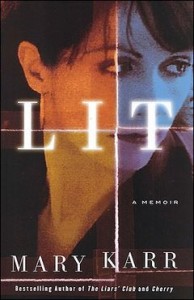Clearing out the mental/spiritual closet

Lent begins today, which is, in Christian tradition, the period leading up to Easter and is intended as a time of reflection, of going within to hear the small still voice, and to take stock of who we are, to face ourselves and not be afraid of our imperfections.
On the Explore Faith website I found this:
Rather than viewing Lent as a season of drab and dreary self-examination and sacrifice that waters down its spiritual potency, we might see it as a time offered to us each year simply to sort things out. It can be an intentional period of 40 days that can be used to realign the disorder in our life that keep us out of balance with our own soul and with the God who loves us boundlessly, unconditionally, and eternally. Using Lent to take an honest look at the disarray inside ourselves with an eye to discarding the debris leaves us renewed, with eagerness, enthusiasm, gratitude, and a readiness to offer ourselves to God and to the world.
And in a book I’m reading called, INNER WORK by Jungian Analyst Robert Johnson on working with the unconscious, I find this:
Shadow moon
Our egos divide the world into positive and negative, good and bad. Most aspects of our shadows, these qualities that we see as “negative,” would in fact be valuable strengths if we made them conscious. Characteristics that look immoral, barbaric, or embarrassing to us are the “negative” side of a valuable energy, a capacity we could make sue of. You will never find anything in the unconscious that will not be useful and good when it is made conscious and brought to the right level.
What part of you will be hidden behind this symbol, the thief? Perhaps a lively trickster, with all sorts of surprising talents. Perhaps a juvenile delinquent in you who has never been allowed to grow up and put his heroic urge into something useful and mature. Perhaps is is Dionysus, who has had to hid out in the unconscious because you have no natural place for his ecstatic and lyrical spirit in the midst of your purposeful life.
For people like me, who choose to stay away from drugs and alcohol one day at a time, it is often suggested we make a moral inventory of ourselves. Recently I had someone, newly sober, ask what on earth the point of THAT was? Well, I think the point is that few of us really have a clue about why we do the things we do, or why we can’t seem to do the things we know are good for us and for others. Some of us (in fact, every honest alcoholic I’ve ever known) has done some things they’re not proud of, and don’t want to admit doing, but which fill them with shame no matter how they try to ignore them. Making a moral inventory of ourselves is a wonderful opportunity to examine feelings of guilt, resentment, fear, and anger; to examine unthinkable thoughts, attitudes toward sex, opinions of ourselves, as well as an inventory of our assets. In short, like Lent, it’s an opportunity look in our cupboards and see what’s rattling around in there, what we want to keep, what needs repair, and what we might have outgrown, or never needed in the first place.
Heck, when I took my moral inventory, I found out a lot of the stuff in my cupboard didn’t even belong to me; it belonged to my mother, bless her.

"Lit" by Mary Karr
I also just finished reading Mary Karr’s excellent memoir of sobriety, LIT. In it she recounts a moment when her sobriety adviser suggested she chroncile the resentments chewing her up:
I’ve been looking at myself in therapy off and on since age nineteen, I say.
A lot of therapy is looking through a child’s eyes, she says. This is looking through an adult’s.
I like that. Looking through an adult’s eyes. I’m not big on the whole inner child stuff. My inner child’s a bit of a brat and a whiner, prone to selfishness and tantrums. The Little Princess. Snort.
When Karr finally does make a moral inventory of herself, she shares the stuff she isn’t too pleased about with a Franciscan monk. When she’s done Brother Francis says,
Leave all that stuff here with me. God wants you to put this stuff down now. Go wear the world like a loose garment. And be of good cheer. If you let God in, He’ll take this shame from you.
Even if you don’t believe in GOD, as in the big old guy with a beard, sorta like Santa Claus, only a Santa Claus who’s occasionally (or frequently) pissed off at you, even if your belief runs to science, or mystery, or even just your very best self, you can switch out the word “God” for one of those, and the advice is still good. Leave all that stuff here. The part of you that’s mentally healthy and useful to yourself and others wants you to put it down. Be grateful for what you’ve got, and never mind what you haven’t got. If you let humility and wonder and love and service to others guide you, you’ll get rid of unnecessary shame.
Now me, I don’t quibble with words when I can help it. God’s a good enough word for me. What I mean when I say God is indescribable anyway, so what does it matter?
Keep it simple.
